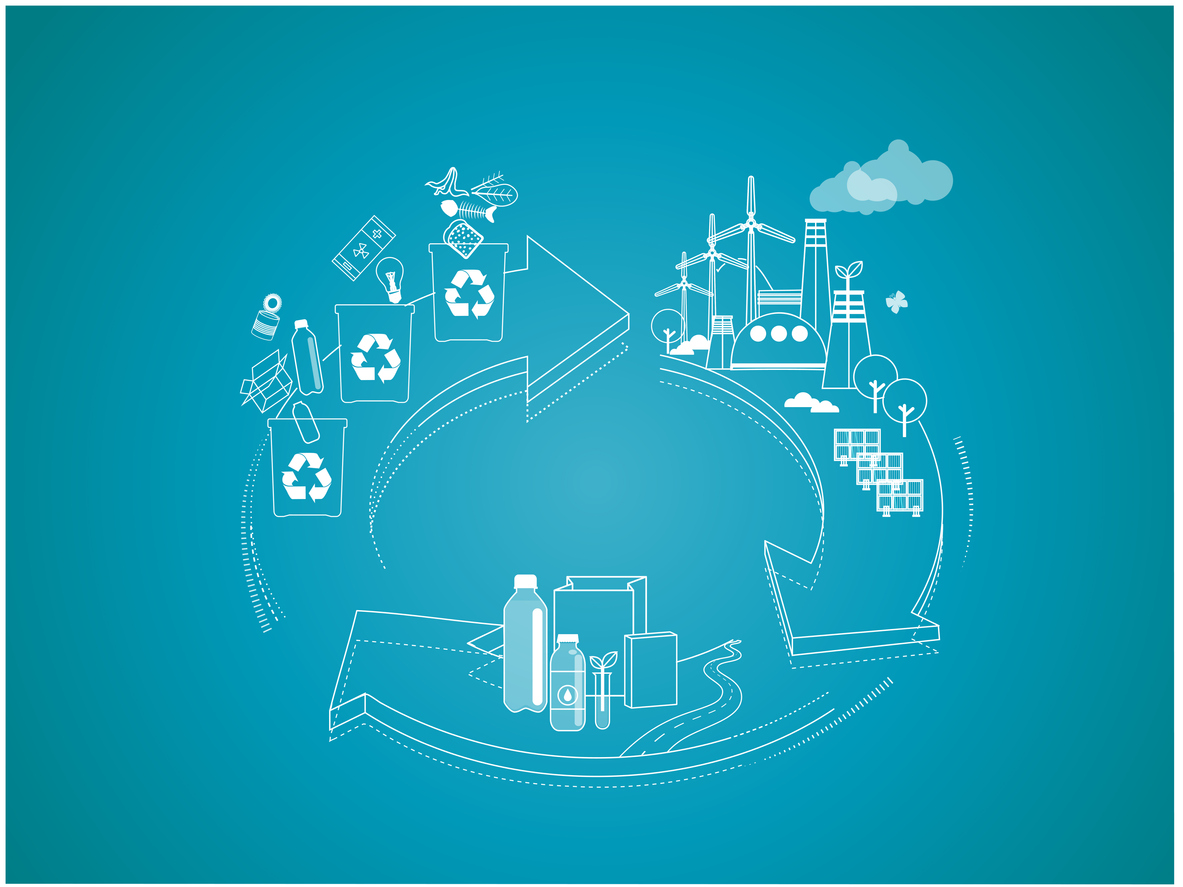
Molecular Recycling Will Drive the U.S. to Become a Leader in the Circular Economy
The creation of recycling policies has a large impact on U.S. economic implications. Recycling, while beneficial for the environment, also helps grow jobs, wages, and government tax revenue. The implementation of recycling policies has “impacted the discussions around plastics and the circular economy” said Keith Christman, Managing Director, Plastic Markets at the American Chemistry Council, during his presentation at the Vinyl Recycling Summit.
There are over 100 billion tons of various resources that enter the U.S. economy each year, only 8.6% of those resources end up being recycled and used again. With ever-growing concern for our planet and future generations, it is imperative that society makes the switch from a linear usage model to an effective circular economy where products and materials can be used longer and waste can begin to be phased out.
In conjunction with the implementation of recycling policies, we must also look to diversify recycling innovation. “These systems need to recognize the role of both mechanical and advanced recycling,” Christman said.
Molecular recycling is one form of advanced recycling that Christman is referring to. Some types of molecular recycling allow plastics to be broken down to their chemical building blocks, and then recovered to be repolymerized into new, recycled products of the same plastic. Alternate forms of molecular recycling isolate a polymer from other types and contaminants and allow the recovered material to be used directly into a new plastic material without going through repolymerization. These solutions provide circularity for plastics and should mitigate plastics being discarded as waste and ultimately landfilled.
Some policies being proposed are outdated because they fail to encourage innovation and fail to adapt to rapidly growing societal needs. Molecular recycling technologies are a sustainable solution towards combating the climate crisis and making infrastructure more resilient. Policies that keep up with innovation, and are data driven will ultimately be the policies leading the U.S. towards a successful circular economy with a strong basis for economic, social, and environmental sustainability.

